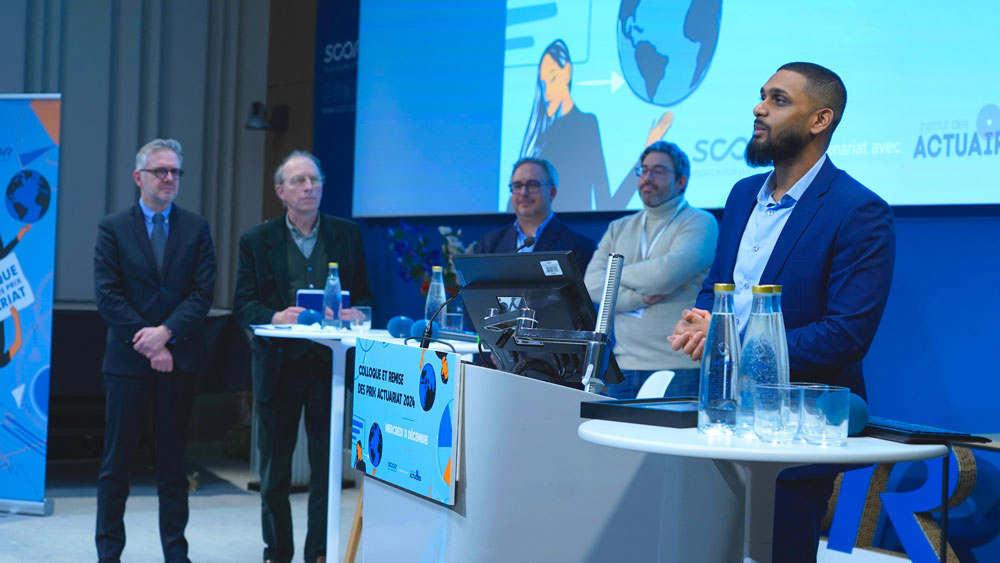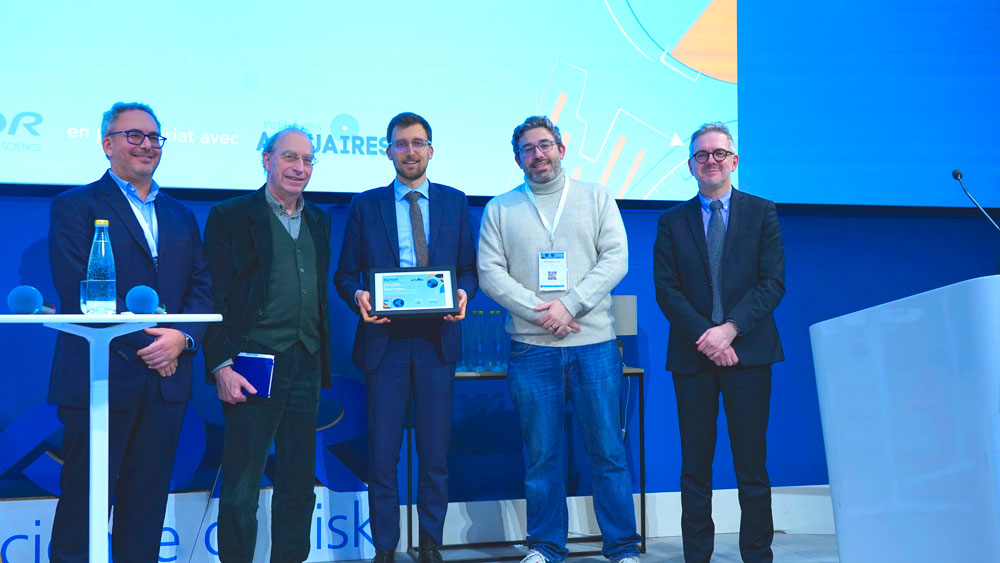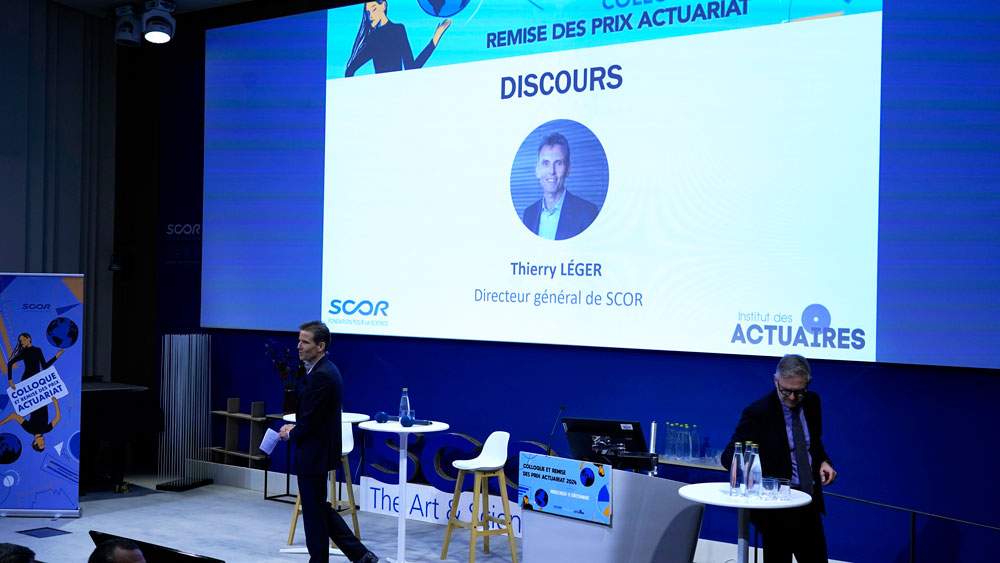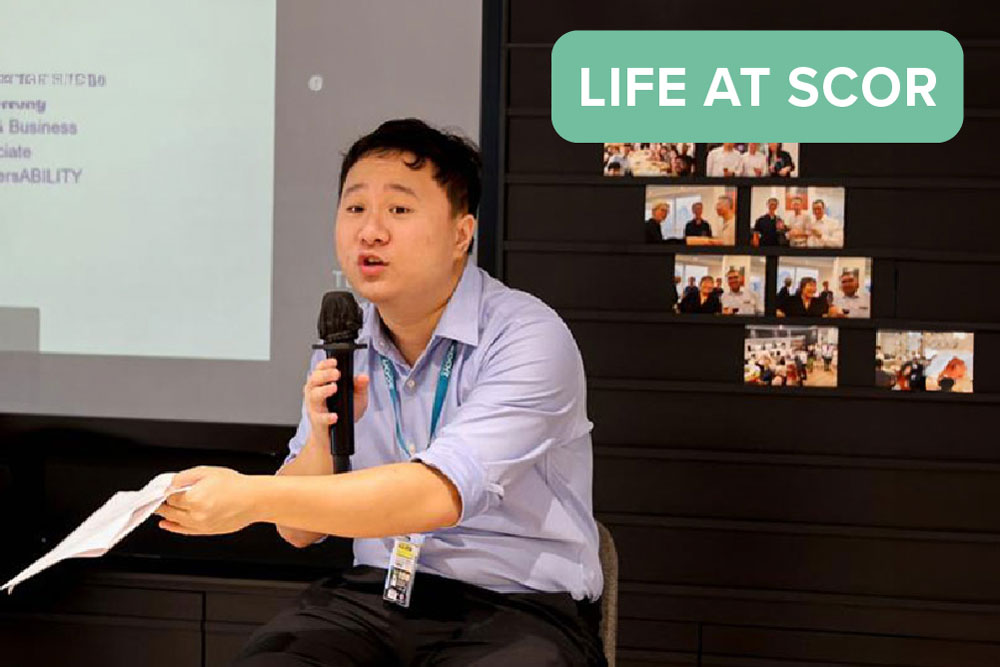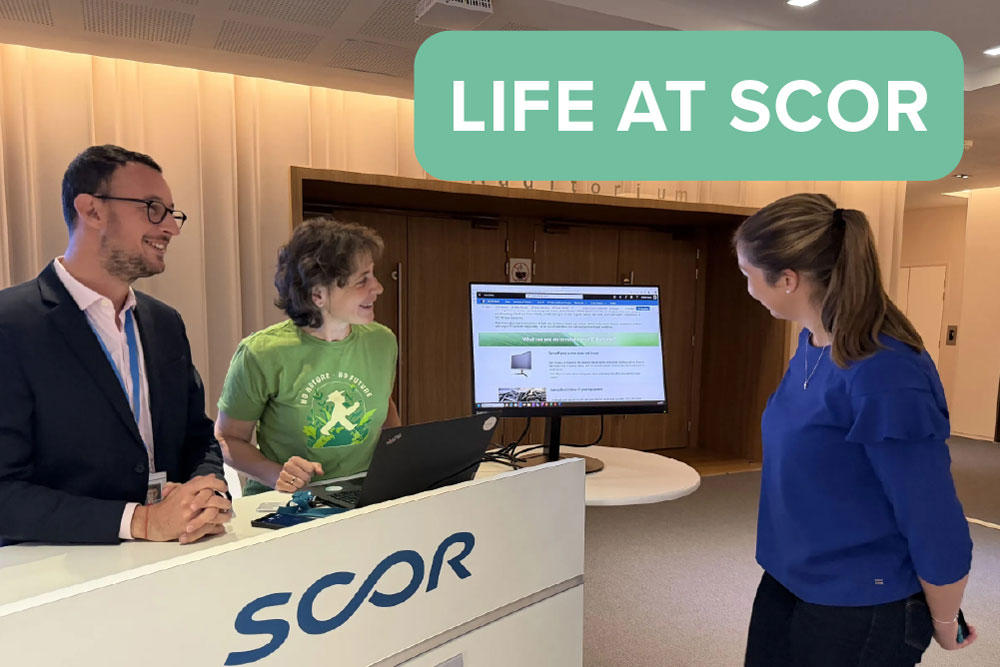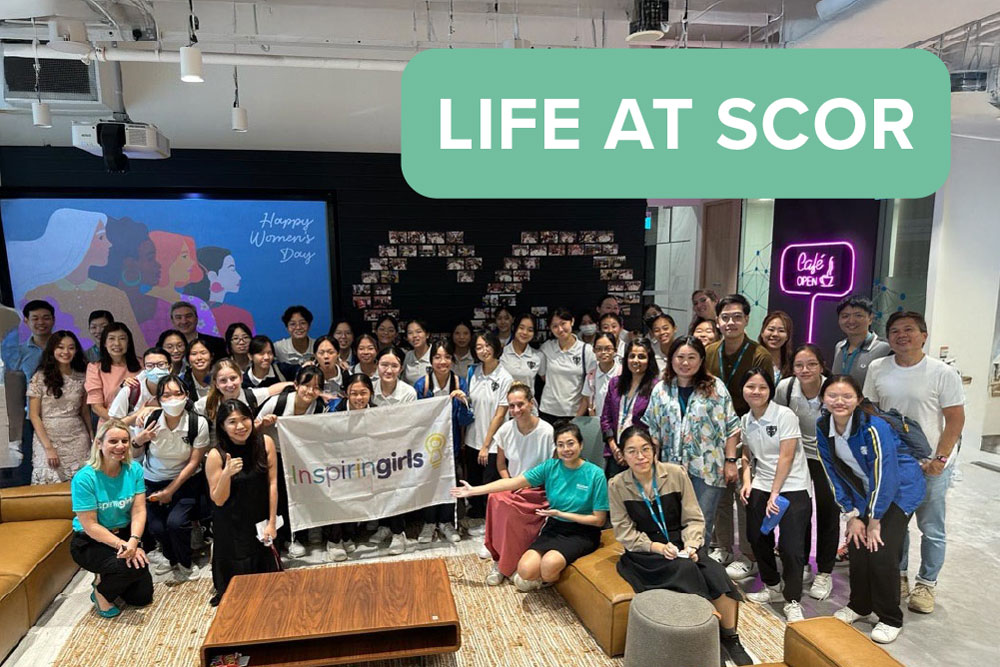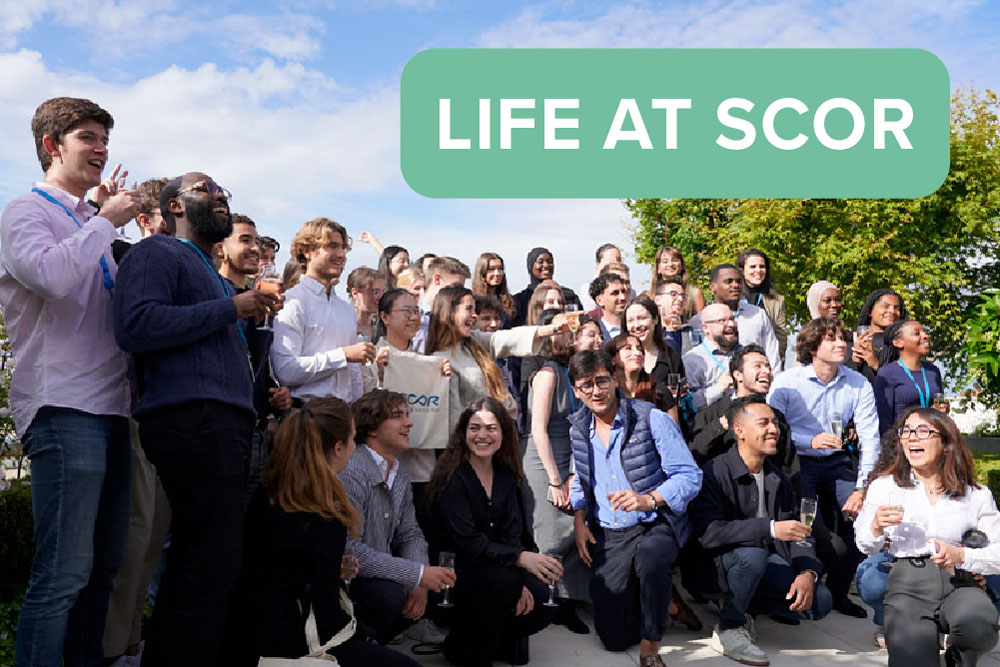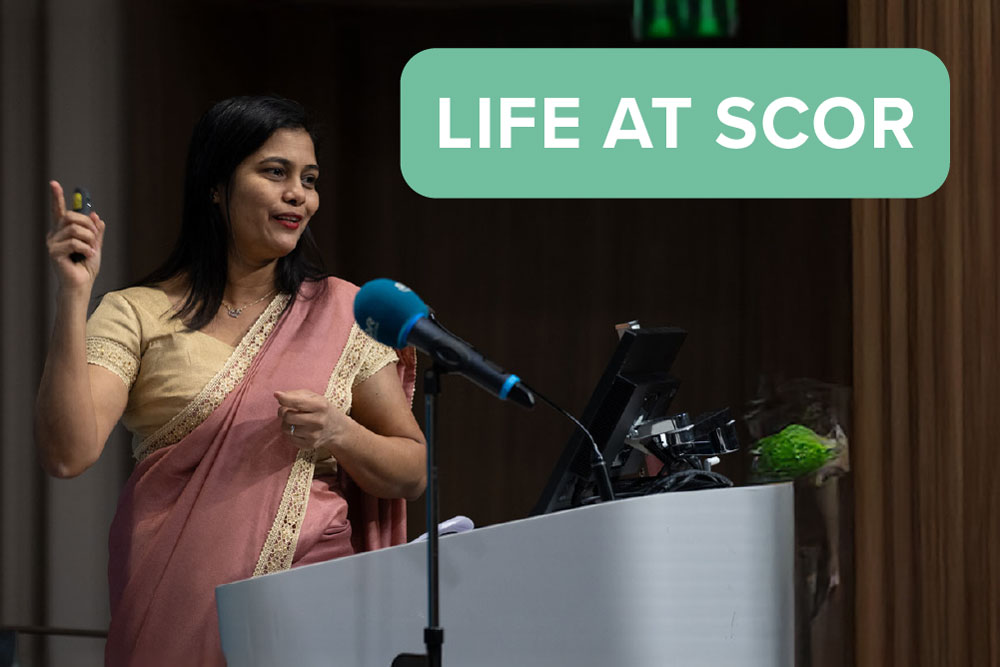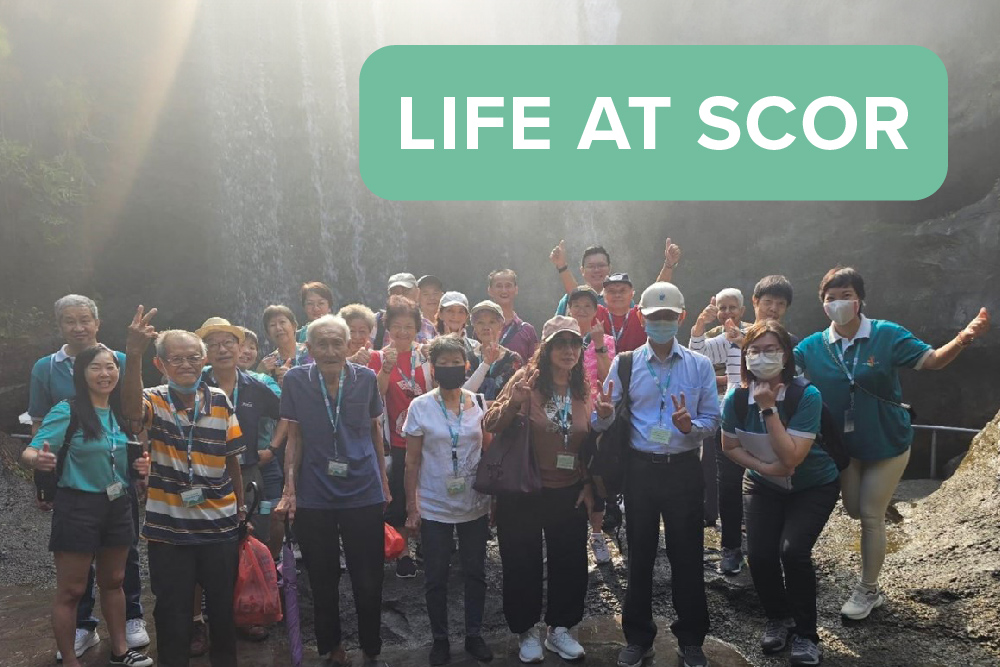
2024 French Actuarial Awards winners Sébastien Farkas and Nicxan Hensman Stalin
The SCOR Foundation for Science is playing an active role in bridging academia and industry
9 juillet 2025
Forecasting the future by actively supporting risk research
In 2011, SCOR took a step toward deepening our commitment to advancing scientific knowledge and understanding of long-term risks by establishing the SCOR Foundation for Science. The mission was clear: to support rigorous academic research in risk-related fields and to anticipate the challenges and solutions of tomorrow.
The Foundation was born from the vision of Denis Kessler, then CEO and Chairman of the Board of SCOR, who recognized the need to look beyond the immediate operational horizon. While research into the short-term impacts of risk is vital for pricing and portfolio management, the Foundation was designed to explore the unknowns: those emerging risks that could reshape the insurance landscape in the decades to come.
Since its first project was launched, the Foundation has steadily grown in visibility and impact. Webinars, workshops, and publications ensure that findings are shared not only within SCOR but also with the broader academic and professional communities.
Philippe Trainar, who was first involved in the Foundation’s launch in his role as SCOR’s Chief Risk Officer and now serves as Director of the Foundation, reflects on its evolution: “We were learning by doing at the beginning. But over time, we’ve built a model that balances scientific independence with relevance to SCOR’s business. Thanks to this established model, the Foundation has gained significant recognition among researchers, who now actively seek to collaborate with us to address public interests.”
The Foundation’s governance is anchored by the Board of Directors and the Scientific Board that both play a crucial role in determining the relevance of projects through a rigorous selection process. The Board of Directors defines strategic orientations, and ensures the Foundation's proper functioning. The Scientific Board, composed of recognized scientists from various disciplines, evaluates proposals based on their academic merit and alignment with current global challenges. “Projects are selected due to their consistency with contemporary needs and the Foundation’s long-term strategy and are then submitted for independent scientific validation,” explains Zeying Peuillet, General Secretary of the Foundation. Research areas have included the economics of risk, longevity, actuarial fairness, climate change, and pandemics.
One such example is the SCOR Chair on Mortality Research, which aims to conduct groundbreaking demographic research in the fields of mortality and longevity, with a particular focus on multiple causes of death, multi-morbidities, and mortality forecasting. This chair is dedicated to advancing our understanding of these critical areas, which are not only relevant to the insurance and reinsurance industries but also have the potential to significantly impact public health policies and societal wellbeing. Other projects, such as “Human auto-antibodies neutralizing type I interferons: strong, common, and universal determinants of life-threatening viral infections,” also explore health risks. The project's primary goal is to identify and understand the genetic causes of potentially lethal autoimmune reactions and offers insights into the role of genetics in pandemics.
Another area of interest centers around climate change-driven risks: launched in 2025, the Climate Risk & Uncertainty Collective Intelligence Laboratory (CRUCIAL) aims to improve climate predictions using expert-driven prediction markets to support policymaking, adaptation planning, and financial risk assessment.
These and other initiatives highlight the Foundation's commitment to supporting research that is industry-relevant and has the potential for significant societal impact.
The SCOR Foundation for Science also works to foster the next generation of actuarial and risk professionals through, for example, annual French Actuarial Awards in Paris. Held in partnership with the French Institute of Actuaries, these awards recognize the best actuarial dissertation ("Prix des Jeunes Actuaires") and the best doctoral thesis on risk management ("Prix des Jeunes Docteurs") from French, Belgian, or Swiss institutions. Winners are selected by esteemed juries for their mastery of concepts, analytical quality, and practical relevance.
Prus Next
“Our foundation stands out by its long-term goals and focuses on future advancements rather than highlighting past achievements,” Philippe says. He also points out that what sets the SCOR Foundation apart is its dual commitment to fundamental science and to practical relevance: The Foundation doesn’t support research for the sake of research, nor does it prioritize topics that are exclusively appliable to SCOR’s core business. And for researchers, the Foundation offers not only funding but also access to SCOR’s expert teams, and a platform for long-term collaboration.
As the Foundation looks to the future and is preparing its 15th anniversary in 2026, Philippe Trainar says that the goal remains clear: “We will continue to lead the path ahead through science, ensuring that both SCOR and the broader risk community are better prepared for the uncertainties of tomorrow.”
To learn more about the SCOR Foundation for Science, visit the Foundation’s website.
Related articles

